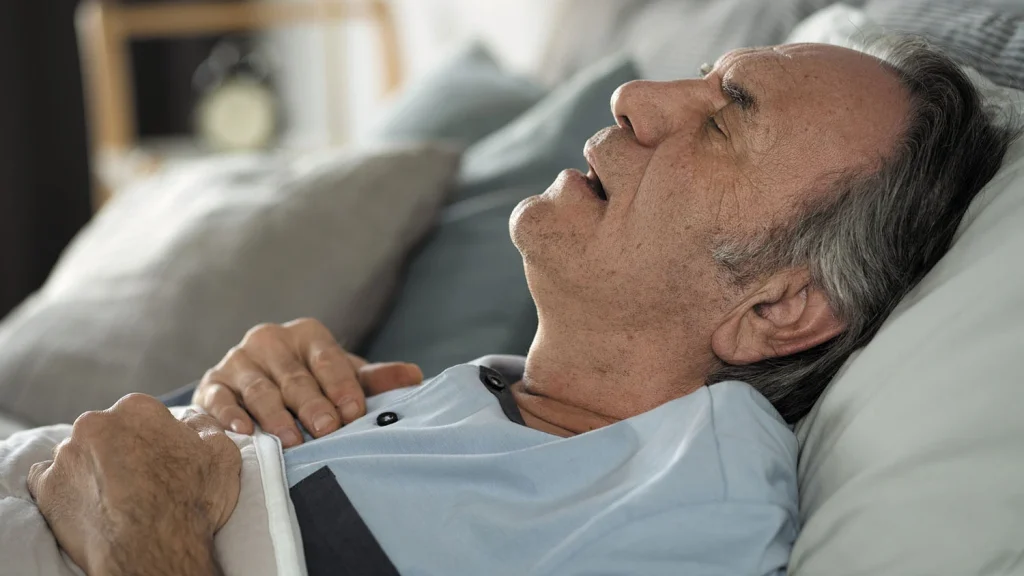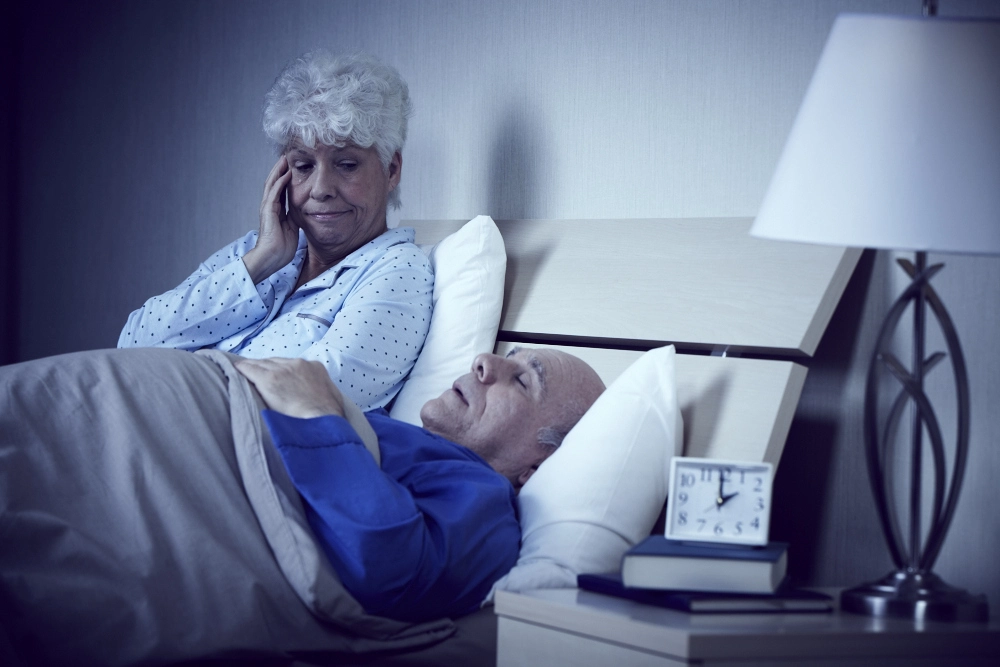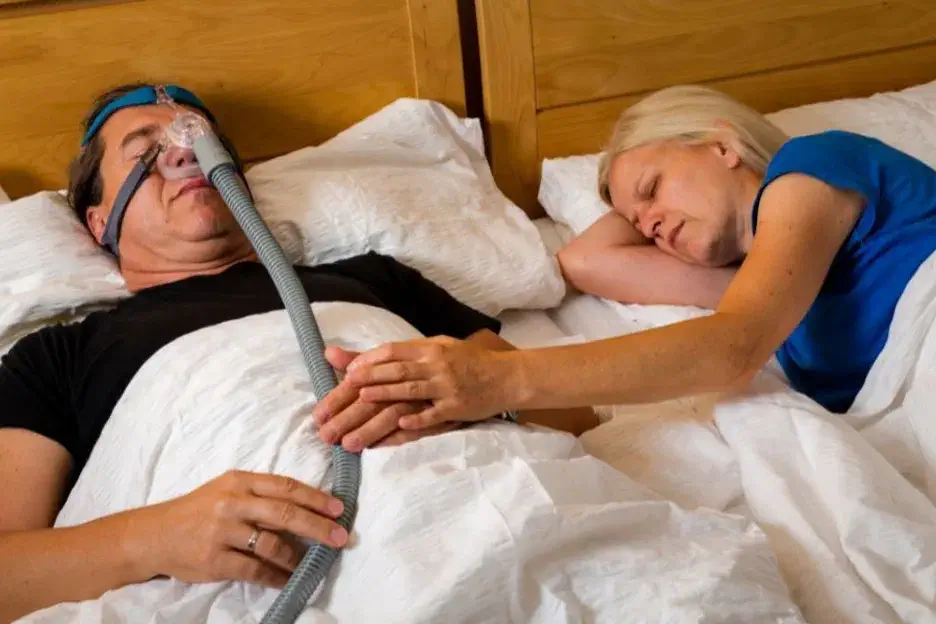
Sleep Quality for Elderly With Sleep Apnea: Important points
Does sleep apnea affect sleep quality? Do you know what are the tips for sleep quality for elderly with sleep apnea? As we also said in sleep apnea treatment for seniors one of the problems that occurs among the elderly is sleep apnea, or respiratory apnea, and stopping the flow of air in a person’s airway for 10 seconds is called respiratory apnea. As a result of respiratory apnea, various symptoms occur, including morning headaches, feeling tired during the day, poor quality of sleep at night, and dry mouth and throat. In people with apnea, daily functioning decreases and the quality of life of people decreases.
Research studies also show that most elderly people have sleep apnea. Respiratory apnea is more prevalent in elderly men. In the rest of this article from humanhealthmag, we will learn more about methods to improve sleep quality in these people.
Causes and Symptoms of Sleep Apnea
Before talking about sleep quality for elderly with sleep apnea, we must first familiarize ourselves with the symptoms of this disorder. In general, obesity is one of the most important factors in causing respiratory arrest in people. Research shows that very obese people are about 27 times more likely to have respiratory arrest than people with normal weight. Also, the likelihood of respiratory arrest in smokers is higher than in non-smokers, which is probably due to inflammation and swelling of the airways of the respiratory system.
Other studies have also shown that the larger the neck circumference of elderly people, the higher the incidence of respiratory arrest during sleep. It seems that the larger the neck circumference, the greater the pressure on the respiratory tract of elderly people. Symptoms of apnea in the elderly include:
- The elderly person wakes up with a feeling of suffocation.
- The next day, the person does not feel lively and cheerful and complains of fatigue and lack of energy.
- Dear senior, you are not satisfied with the quality of your sleep.
- The person feels heavy sweating in the chest, neck, head, and face.
- The person probably experiences going to the bathroom several times a night.
- The senior snores loudly while sleeping.
- The person probably experiences a dry mouth and throat after waking up.

Introduction of Sleep Quality for Elderly With Sleep Apnea
There are several methods for sleep quality for elderly with sleep apnea, some of which we will explain in this section.
Weight loss and slimming: By losing weight and reducing fat in the neck structure, around the soft palate and tongue, the severity of snoring and apnea can be reduced. Elderly people should keep their weight at a moderate level to reduce the likelihood of apnea. If this condition is not treated, it can lead to fatigue in older adults.
- Sleeping on the side: By sleeping on the side, the likelihood of apnea can be reduced. People should be in a position where their head is higher than the rest of the body while sleeping. Sleeping on the side causes your head to be in a higher position.
- Avoiding tobacco and alcohol: Tobacco and alcohol consumption by elderly people increases the severity of apnea.
- Keeping the nasal airway open: By keeping the airway open, the severity of apnea can be reduced. For this, you can use a saline nasal spray that contains a salt solution.
- Garlic consumption: Garlic has antibiotic and anti-inflammatory properties and plays an important role in respiratory tract infections, especially tonsillitis. By consuming garlic, you can reduce the risk of apnea.
- Orange blossom consumption: Orange blossom helps to relax the body. You can use it in the form of syrup, tea, and sweat. In addition to reducing apnea, it also helps to improve sleep quality in the elderly.
Effect of Nutrition in the Treatment of Sleep Disorders Like Apnea in Senior
As we said, losing weight is one of the best ways to improve sleep quality for the elderly with sleep apnea. So, elderly people should have a healthy diet to have a good sleep. In addition, most people in their old age face problems such as blood pressure, blood sugar, or stomach and intestinal problems. In situations where people at this age have certain diseases, they should use appropriate medications to treat these diseases. They should also have dietary restrictions and avoid consuming foods that are harmful to their health.

Given the high importance of nutrition at this age, in this section we will tell you what your diet should have to treat sleep disorders in the elderly. Your diet at this age should be as follows:
- Avoid drinking tea and caffeinated drinks in the late hours of the day.
- Avoid drinking a lot of water and other drinks in the last few hours of the night. This will cause frequent urination and prevent you from getting a good night’s sleep.
- Eat light and small meals for dinner.
- Eating sugary foods or foods high in carbohydrates can cause insomnia. It is better not to include pasta, rice or French fries in your dinner.
- Fruits and vegetables should be present as snacks in your daily diet.
Exercise is an Way to Sleep Quality for Elderly With Sleep Apnea
This method is also another effective solution for treating sleep disorders and sleep quality for elderly with sleep apnea. Of course, as people age, it becomes more difficult to exercise. It is better to talk to your doctor about this and ask him to consider appropriate exercises for you, considering your physical condition. Aerobic exercises are usually very effective in treating these disorders and can help people to have more adequate sleep to a large extent.
If elderly people can walk for 20 minutes a day, they will experience more comfortable sleep at night. Using devices such as treadmills can also be effective in improving the sleep conditions of these people. In addition to helping strengthen the muscles of the body and eliminate sleep disorders, doing these exercises can also be very effective in increasing morale.
Concluding Remarks
In this article, we talked about sleep quality for elderly with sleep apnea. In general, sleep apnea is one of the common sleep disorders in the elderly. Most people do not take it seriously, but according to the information mentioned above, the importance of this disorder has become clear to you. If you suspect that you have sleep apnea, be sure to see a doctor and take the necessary measures to treat it. By treating apnea and experiencing quality sleep, give yourself a feeling of vitality and joy during the day.
Note that if people have better quality sleep, they are also more patient during the day. In this article, we have introduced simple and effective solutions to you. Using these methods, you can treat sleep disorders such as apnea and make life sweeter for yourself and other family members. Thank you very much for being with us until the end.
Could you help us make this content even better? What do you love, and what can we improve? Share your thoughts below, feedback is the key to creating better content for YOU. If you also have an experience in this regard, please share it with us and others.

Frequently Asked Questions
Is It Possible to Prevent Sleep Apnea?
In cases where sleep apnea is caused by overweight, smoking and drug use, heart disease, high blood pressure, and other medical conditions, it is certainly preventable. Because by preventing these diseases through a healthy lifestyle and regular physical activity, there will be no sleep apnea and breathing problems during sleep.
What Exercises are Best for Treating Sleep Disorders in the Elderly?
It is best to seek help from your doctor to choose the right exercises. Of course, walking can help boost your mood and reduce these types of disorders.
In Addition to Exercise, What Solutions do you Recommend for Treating Sleep Disorders in the Elderly?
To answer this question, you should say that having a proper diet, not having stress, and reducing worries can be very effective in treating these types of disorders.
Why Should We Avoid Drinking Water in the Late Hours of the Day?
Because these types of fluids can cause frequent urination. As a result, a person is forced to constantly wake up and go to the bathroom. This causes poor quality sleep.
